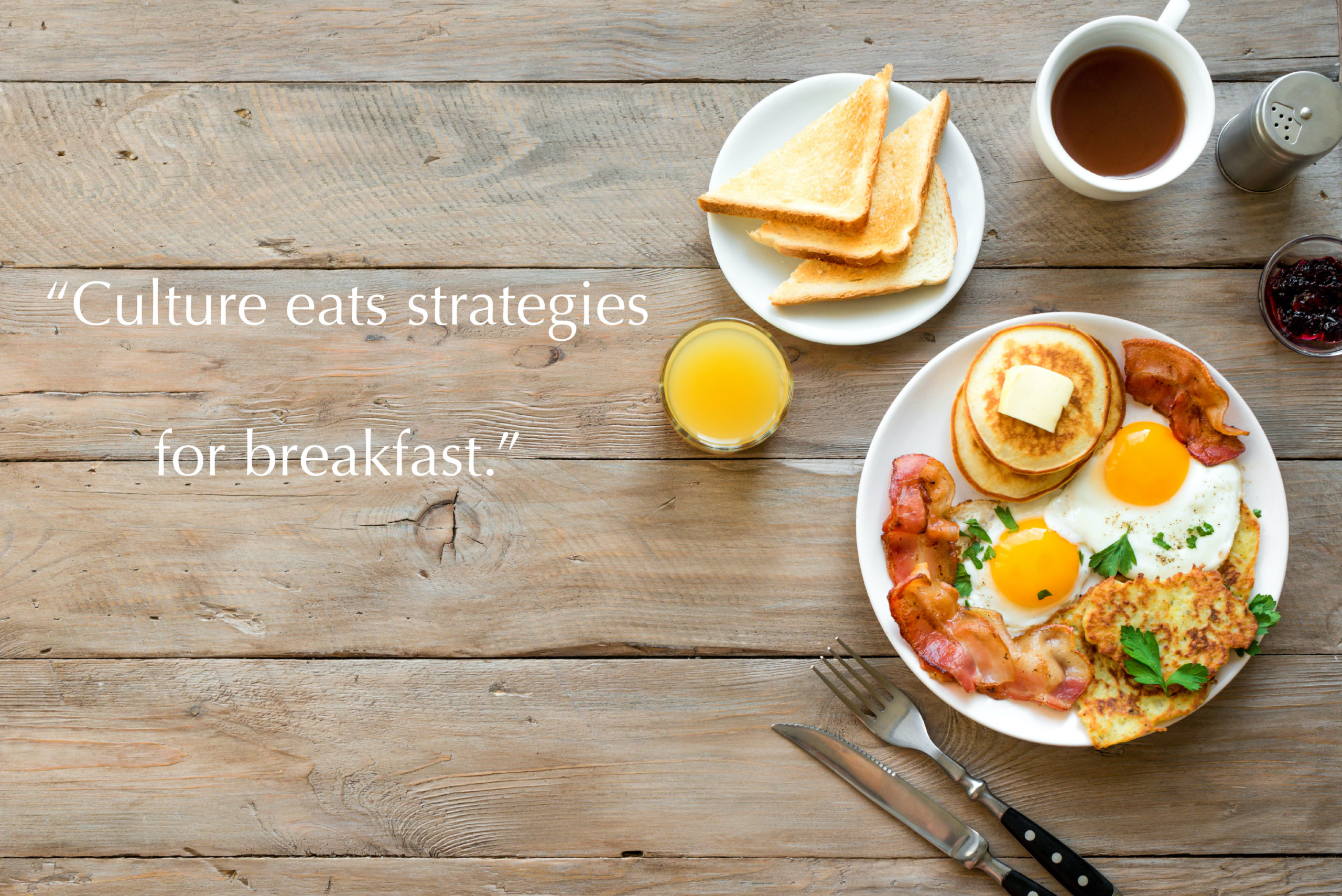Culture Eats Strategies for Breakfast

Culture Eats Strategies for Breakfast
Why is it that wonderful social emotional learning (SEL) programs like Yale’s Ruler or Toolkit are effective in some schools and not in many others?
Peter Drucker, business guru,once said, “Culture eats strategies for breakfast.” No matter what strategy or initiative, it won’t be successful unless the culture is a healthy one where those who attempt to implement a new program or strategy are thriving within the culture.
Any group of people whether in a business, church, club, or school perform best when they are thriving within a supportive culture.
Andrew Friedman, President of Baseball Operations for the LA Dodgers, was instrumental in building both the Tampa Bay Rays and the LA Dodgers, who are the best in the National League and the American League. He says that culture is key in their success:
“At the core of what we do know, we’re involved with trying to provide the best environment and culture for people to thrive,” Friedman said. “And I don’t think that’s different in any business. And it was something that was really important to us when I was with the Rays. And it’s something it’s really important to us now. I think when guys are more comfortable, they perform better. And I think that stems from having honest conversations with people and just the consistency of message and everyone really being on the same page. And it doesn’t mean that we don’t disagree, but I think culture is incredibly important to organizational success.”
This applies to schools, too.
Awakening Wisdom is a school culture approach to social emotional wellbeing. Every aspect of a school’s culture sends messages to everyone in the school, including the “implicit” messages sent by what is not explicitly said, but by the way people are being and relating. When the messages are supportive and empowering, teachers, administrators, students, and support staff in a school feel good about themselves, about their relationships with others, and they tend to thrive. And that results in better academic achievement.
It’s not just what educators DO, but how they are BEING as they do their work of educating their students. Students have incredible insights when teachers don’t walk their talk. If students learn about empathy in an SEL lesson, but walk out of that classroom and experience lack of empathy from teachers and from their peers, the lesson on empathy is lost.
A school culture approach to social emotional wellbeing takes time. Awakening Wisdom’s four phases, as represented by this graphic below, builds a healthy culture slowly.
The foundation for this approach is grounded in what helps people thrive. Sr. Joan Madden, founder of Awakening Wisdom, wanted to nurture wisdom in her students beyond knowledge and skills. In her journey, she discovered that what children (and adults) need are:
- They need to be listened to with empathy.
- They need to be taken seriously.
- They need to have opportunities where they feel like they matter.
When children thrive because their needs for belonging and for self-esteem are nurtured in these ways, learning knowledge and skills are achieved more easily and retained lifelong.
WELCOME
Awakening Wisdom is based on the Ho`āla Educational Philosophy, founded in large part by Sr. Joan Madden, BVM, and has been finely tuned over the past 42 years at three schools, Our Lady of Sorrows and Ho`āla School, both in Wahiawa, HI, and River School in Napa, CA.
